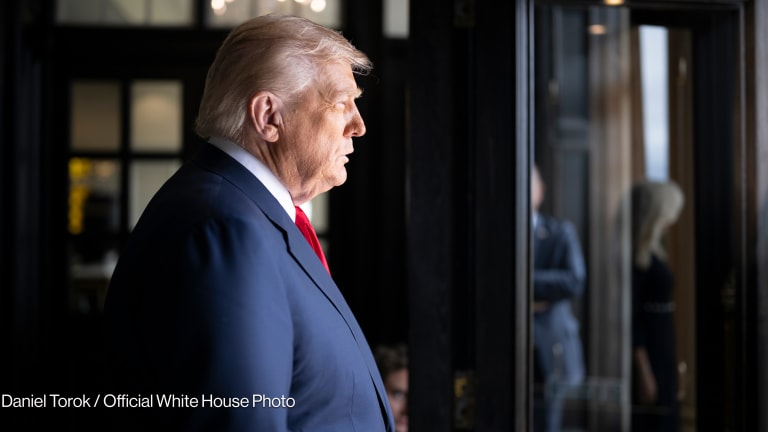Could Trump's impeachment also put an end to his aid 'rescission' threats?

WASHINGTON — For U.S. aid advocates, the impeachment trial currently underway in the U.S. Senate carries echoes of a battle that has played out for two summers in a row. Both of these instances saw the Trump administration freeze — and threaten to rescind — foreign assistance funds appropriated to the U.S. Agency for International Development.
While those episodes — which revolved around an arcane budgetary process known as “rescission” — sent waves of panic throughout the U.S. aid community, they garnered limited public attention. The White House’s rumored plan threatened more than $4 billion of U.S. foreign assistance funding in 2019, and while the administration ultimately opted not to follow through with it, there seemed to be little guarantee they would not try something similar in the future.
Given the exponentially greater attention the issue of budgetary authority has received within the context of President Donald Trump’s impeachment trial, some aid experts believe it could have significant implications for the question of whether these perennial battles between the aid community and the White House will continue.
While the U.S. aid community chose not to pursue legal action against the White House last summer, the U.S. House of Representatives is now litigating a closely-related issue — and with a large portion of the American public’s attention.
“For us in the little world of international development you can make those arguments and people say, ‘yeah but we don’t really want to fight,” said Robert Nichols, a partner at the law firm Nichols Liu, which specializes in development contracts.
“My hope is that by being called out over this in an impeachment proceeding it will keep the administration from monkeying around in appropriations for international development next year,” he said.
Government Accountability Office findings and statements from lawmakers suggested it was illegal for the White House to override the U.S. Congress’s budget authority by withholding funds past the end of the fiscal year — until they expired. However, when the administration froze roughly a dozen foreign assistance accounts last summer, the country’s largest coalition of international NGOs, InterAction, decided not to pursue legal action against the White House.
As Devex reported, in an Aug. 15 email from InterAction President Sam Worthington to the coalition’s members, he voiced concerns about the “optics” of suing the administration over funding, worried the organizations might appear “solely focused on the money,” to the detriment of a deeper argument about “principle and the legality and the separation of powers.”
“We might win the battle only to lose the war by pushing foreign aid into a high-profile social media storm that then really hurts our bipartisan approaches,” Worthington wrote.
Last week the Government Accountability Office published a decision that found the Office of Management and Budget’s withholding of security assistance to Ukraine to be illegal — specifically, a violation of the Impoundment Control Act, the same law that the White House rescission plan appeared to violate.
“When Congress enacts appropriations, it has provided budget authority that agencies must obligate in a manner consistent with law,” the GAO wrote in its decision.
“Faithful execution of the law does not permit the President to substitute his own policy priorities for those that Congress has enacted into law,” the decision states.
Now, the U.S. House of Representatives is pointing directly to that finding to make its case that not only did Trump abuse his power by seeking a political favor from a foreign government, but he also broke the law by withholding security assistance in order to do so.
“My view is that with this administration, playing politics isn’t necessarily going to carry the day. If they’re actually doing something illegal, being willing to stand up for that is what really makes the difference,” Nichols said.
Search for articles
Most Read
- 1
- 2
- 3
- 4
- 5








